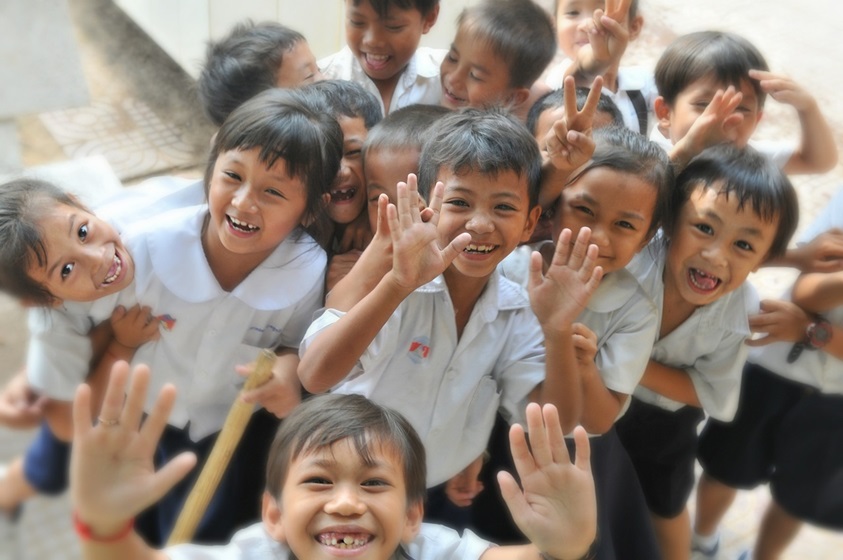
The cultural code of coolness in Western societies
Being cool has been embraced by our Western culture almost like an indispensable necessity. You better fit in with the cultural code of the hip crowd at school or else you will quickly be cast aside as an outsider who wears the wrong brands, doesn’t look indifferent enough and (shockingly) is interested in learning something. This attitude and behavior is all reinforced and fed by the way our current society and media landscape are wired: A lot of smoke and vanity, a lot of consumerism, a lot of marketing and illusionary appearance, but very little substance.
And school is a microcosm of what is going on in society at large. If appreciation of a good education and academic achievement (in other words: “substance”) are belittled and pushed into the background by so called “influencers” who convey that it is more important to score with chicks, look good in your Ray-Ban sunglasses, have an imposing facebook profile and throw in a witty remark every once in a while, then maybe we should reconsider what kind of society we would like to live in.
Do other non-Western societies follow similar codes of coolness?
One might quickly assume that this cultural construct of coolness pervades all societies of the world in an equal way, being infatuated by one’s own perception of Western cultural dominance, but one would be mistaken in concluding that. Particularly my three years of living and teaching in Vietnam made me realize that students there seem to be far less sucked in by the tyranny of the cool. Vietnamese students and Vietnamese society in general seem to be far more appreciative of the importance of good education and they make sure that a misguided focus on coolness doesn’t get in the way of achieving academic excellence and personal growth.
That is not to say that the country doesn’t struggle with its education system (with the exception of the excellent international school network which can only be afforded by the rich or special Vietnamese schools for the gifted). It also doesn’t mean that Vietnam’s citizens don’t put an extreme emphasis on showing off their riches and status symbols to their neighbors. However, they do this for different reasons, not out of a culturally developed code of coolness that overwrites the importance of intellectual and scholarly achievement. Coolness doesn’t push education aside. On the contrary, education is seen as a means of gaining respect and realizing social upward mobility.

Attitude of coolness as a destructive force
A tad of coolness certainly doesn’t hurt, as long as a healthy balance has been established of knowing what really matters and what doesn’t. But it becomes problematic if there is a lack of balance and the attitude of coolness takes on a destructive tendency. Coolness dictates a certain point of view and approach towards life and therefore learning and education. If students’ desire to be cool affects their willingness to learn and grow and drives them towards an almost stoical behavior of non-participation and passiveness in class, there is a great chance that they will become yet another case of unfulfilled potential.
I have one particular class in mind that I taught at a secondary school in Hamburg, Germany that exhibited a very extreme case of being too cool to actively participate in anything in class. Most of the time I would do lessons with just four active students (out of 28), while the rest would just sit there impassively and emotionally detached. Normally, I have zero problems engaging students, but in this class it was virtually impossible to pierce through the shell of coolness that was all-pervading. Other teachers that were teaching this class reported of having the exact same problems. It was strikingly evident that the group effects of the underlying code of coolness in this class clearly led to an academic downward spiral that resulted in a D grade average of the entire class and a rather gloomy prognosis for the educational future of many of those students.
Attitude of coolness as a coping mechanism
If the attitude of coolness and the ensuing impassive detachment from the educational experience can be so self-evidently destructive to one’s own academic progress and well-being, how come that nonetheless many students give in to it?
Often, this outward attitude of coolness is merely a mask that is being put on to fit in with the peer group in the struggle for popularity and attention and the attempt of figuring out one’s own identity. Also however a mask that is put on as a protective or coping mechanism to give you a feeling of superiority and to avoid intimacy and having to deal with failure. If students do not learn though to deal with failure and other educational-social experiences in a more constructive way, it leaves them ill-prepared for a future with similar situations in the “real world”. Another point is that if a large amount of students in class emotionally detach from taking interest in their own educational progress, it can reinforce a classroom atmosphere where hardly anyone dares to take part in educational activities anymore, as was the case in the class that I was teaching, described above.

What kind of society do we want to live in?
Do we really want to live in a society where achieving academic excellence is almost frowned upon by the cool group, where learning is seen as something tedious and where therefore often students’ potential remains untapped, as they are crippled by their own and their peers’ maelstrom of negative attitudes towards learning and education?
To develop more positive attitudes towards learning and education again, it is important to discuss this issue not only from the perspective of the schools, the teachers, the students and the educational system, but also to see the larger picture: What can the media do to change this? What can legislation and our governments do to change this (not only on a mere level of pedagogic framework)? What can parents do to change this? How can everyone lead by example, so that our children do not copy our cynicism and our own shallow attitudes of coolness? What can we learn from other cultures where the code of coolness is not so entrenched in the cultural fabric of society?
I would love to spark off and take part in a discussion which addresses how our society can develop a more positive and constructive outlook towards education and learning again. Please take the time and leave a comment below. Thank you!
